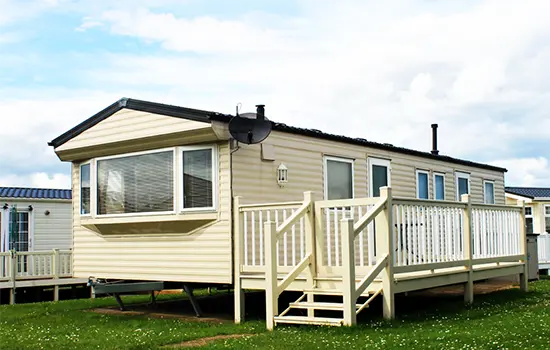Pros and Cons of Buying a Mobile Home – Mobile Homes have gained tremendous popularity over the years amongst single-family owners. Undoubtedly, purchasing a mobile home park is a unique investment, with a few key differences.
Table of Contents
What are the Pros and Cons of Buying a Mobile Home Lot?
When one purchases a mobile home park, they are essentially buying land that has been zoned to be rented out as separate lots to different mobile homeowners. Therefore, one can lease these lots to the mobile homeowners for a monthly, or yearly, fee.
The advantages of mobile homes park are as follows:
Economical:
Most park owners own the land, but do not use the housing units themselves which indicates that the cost of the investment is a lot less in comparison to the number of units owned. In other words, when you purchase a mobile home park, you are just purchasing land that can be rented to a tenant who will put his/her physical asset, the mobile home, on that land.
Tenant is accountable for repairs and maintenance
As a Landowner of a mobile home park you are only responsible for repairs and maintenance on the actual land or any of the following:
– Cutting extra grass
– Shovelling snow
– Garbage removal
– Maintenance and repairs on a communal pool or clubhouse.
However, if there is any plumbing or general issue, the owner of the mobile home is responsible for it.
Tenant Turnover is low-
Tenants sign a lease before booking any mobile home park. This lease acts as a commitment. Moreover, the primary reason for low turnover is that when a tenant moves into or out of a property, they have to move their entire house with them and not just a few items like a couch or some clothes. Moving an entire mobile home involves a lot of time, effort and resources. Therefore, the tenant turnover rate is much lower in a mobile home park than it is in a traditional rental property.
High Demand–
According to US Census Statistics, there are approximately 4.6 million mobile homes in the country. The reason for this increase is because at times it can be difficult to get zoning approval to build a property according to your preference, therefore it is easier to build and customise mobile homes. Therefore, with this increase in mobile homes, the demand for mobile home parks has also increased.
The disadvantage of mobile home park are as follows:
Demand Specific:
Purchasing land where there’s an actual demand for mobile homes in the area can be stressful. Demand fluctuates a lot. Within a state; one town may have a large demand for a mobile home park while another town in the state will have zero demand for one.
Allowance per lot:
As per the norms, one is only allowed to have a certain number of mobile homes in the park based on the lot size. If you are buying a mobile home park, it is important to ensure that the current owner has not exceeded the legal allowance.
Hassles on repairs and maintenance-
There are at times some cases when the tenants do not keep up with the repairs and maintenance on their property, this further could make the rest of the park untidy or not maintained. Moreover, this could cause other mobile homeowners to not take up your park and look elsewhere for their permanent residence. Therefore, it is important that at the time when the lease is being signed, the clauses of keeping the property upkeep are essential, because later, it can be troublesome getting the tenant to comply with the maintenance responsibilities.
Are Mobile Homes a Good Investment?
Despite disadvantages, investing in a mobile home park is a safe investment as with time the value of the land will increase and the rent that is acquired from the tenants will also increase over time. The pros outweigh the cons and hence, one must look for the right land at Landsale4u.
We have a variety of land options that can be used for mobile home parks as well. Make a wise investment by purchasing your land from LandSale4U. For more details visit: https://landsale4u.com
Surender Sharma
Land record is a generic term which is used to refer to a number of records. These include Records of Rights (RoRs), register of the lands, crop inspection register, tenancy, mutation register, disputed case register, and so on. Land record also includes certain geological information in regard to the land such as the shape and size of the land, type of soil on the land. It can also include the economic information in relation to the irrigation and crops.

